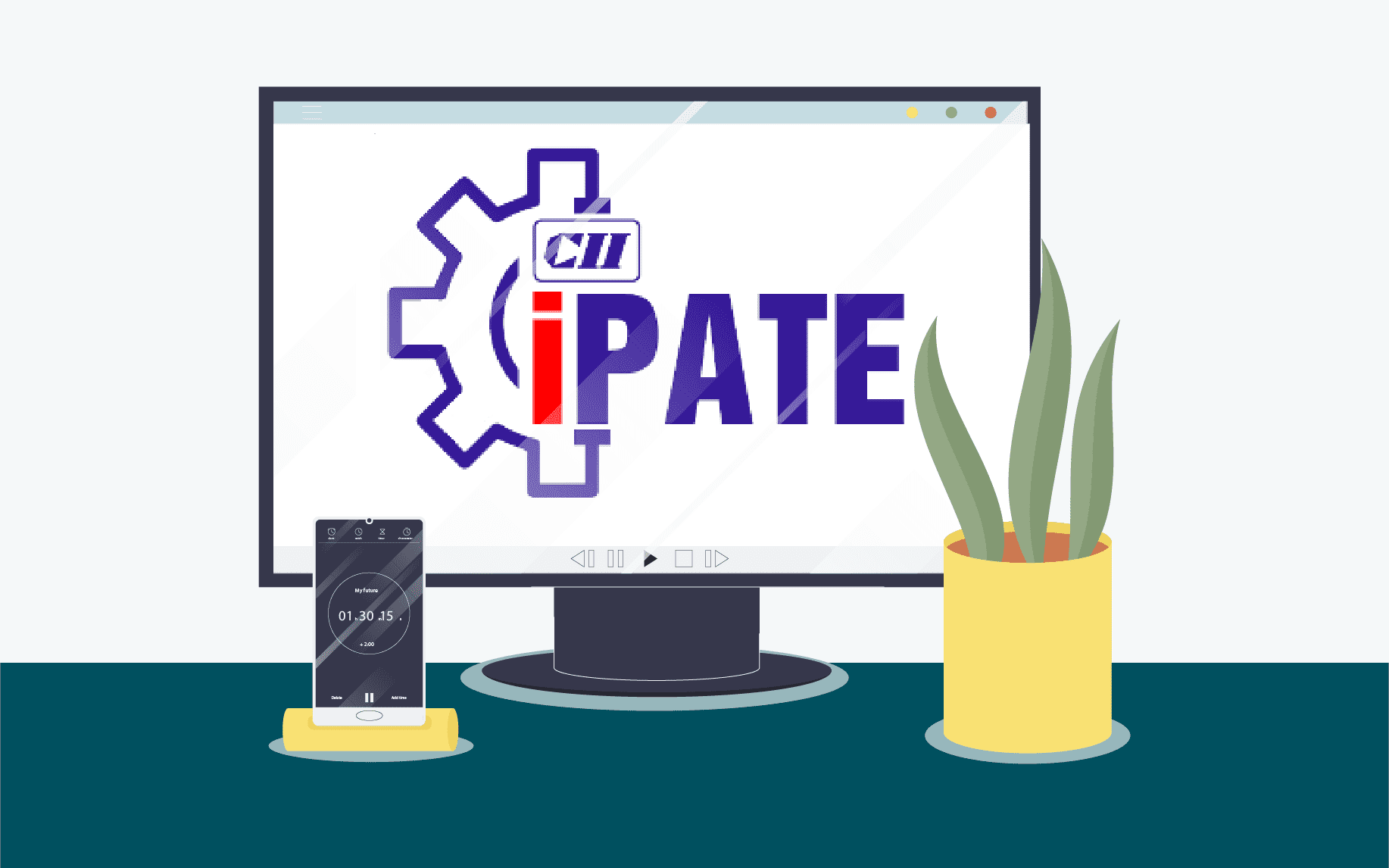CII-iPATE Exam
Have you completed your undergraduate degree in engineering and want to explore jobs in the public sector? There… The post CII-iPATE Exam appeared first on Leverage Edu.


Have you completed your undergraduate degree in engineering and want to explore jobs in the public sector? There are various recruitment exams which Engineering graduates can appear for after completing their bachelor’s degree. One such exam is CII-iPATE, i.e. Industrial Aptitude Test for Engineers. With iPATE scores, you can apply for job vacancies under companies and organeisations affiliated with the Confederation of Indian Industries. Want more information on the iPATE exam, it’s syllabus and notifications for the year 2023? This blog brings you a detailed guide on CII-iPATE exam pattern, syllabus, registration process and exam dates for 2023.
| Particulars | Details |
| Name of the Examination | Industrial Proficiency Aptitude Test for Engineers (iPATE) |
| Commonly Known as | CII iPATE |
| Conducting Body | Jointly administered by Confederation of Indian Industry (CII) and CALNESTOR Knowledge Solutions. |
| Purpose of the Exam | The exam will be conducted to recruit Engineers for Indian Industry on PAN-India basis. |
| Mode of the Exam | Computer-based Exam (Home based test) |
| Mode of Application | Online |
| Validity of CII iPATE score card | 3 years |
What is iPATE?
The iPATE or the Industrial Proficiency Aptitude Test for Engineers is a technical recruitment process conducted by the Confederation of Indian Industries for recruiting Engineering graduates. The score cards of qualifying candidates are shared directly with Indian recruiting companies, who will then directly call the candidate for interviews based on their score and rank. The exam aims to test the knowledge proficiency and technical skills of engineering students in their area of expertise, so that they can get relevant employment opportunities. The major areas of opportunities involve both the private and public sector. iPATE allows engineering graduates to exhibit their professional skills and advance themselves towards finding a place in renowned companies across India.
iPATE Syllabus
To prepare efficiently for the test, prospective candidates must know the main areas and topics they will be tested on. This will help them increase their chances of getting a higher score and simultaneously being considered for recruitment by top-notch industries. The iPATE syllabus is divided into three sections as follows.
| iPATE Section I | Cognitive Abilities |
| Quantitative Aptitude | Allegation and Mixture; Areas and Mensuration, Average, Calendar; Coordinate Geometry; Chain Rule; Compound Interest; Height and Distance; Partnership; LCM and HCF; Number System; Problems on Ages; Pipes and Cisterns; Boats and Streams; Cryptarithmetic Problems; Percentage related problems; Volume and Surface Area; Profit and Loss; Problems on Trains; Progression; Simple Interest; Simplification; System of Equations; Time and Work; Square Roots & Cube Roots; Time, Speed & Distance; Ratio and Proportion |
| Analytical Reasoning | Analogies; Arguments; Blood Relations related Problems; Binary Logic; Cause and Effect; Clocks; Cubes; Logical Game; Artificial Language; Course of Action; Data Sufficiency; Letter Series; Logics; Letter Symbol; Logical Connectives; Syllogism; Logical Sequence & Matching; Logical Problems; Verification of Truth; Logical Deduction; Number Series; Seating Arrangement; Calendars; Classification |
| Data Interpretation | Radar or Web; Line Chart; Pie Chart; Combined Data Set; Graph related questions; Tabular Form; Bar Graph or Pie Charts; Caselet Form; Missing Data Interpretation |
| English Communication | Sentence Correction; Paragraph Formation; Sentence Formation; Synonyms & Antonyms; Words Ordering; Vocabulary; Comprehension; Change of Voice; Sentence Ordering; Grammar; Idioms and Phrases; Spotting Errors |
| iPATE Section II | Professional Abilities |
| Project Management | Contracts: Different Forms/Types of Contracts — Government, ICE, FIDIC; Legal Basis of Contract – Law of Torts and Indian Contract Act; Provisions regarding Employer; Contractor and Engineer /Supplier – Responsibilities and Duties; Types of Contract; Arbitration and Disputes: Contract Provisions – Amicable settlement and Mutual discussions as a first step; Dispute Resolution Board/Expert; Arbitration – Location, Single, Two Arbitrator with the umpire — Independent or Departmental as given in the Contract, Speaking Awards; General Areas of Dispute; Legal Basis of Contract – Law of Torts and Indian Contract Act |
| Health Safety and Risk Management | Topic related to Concepts of Occupational Health Hazard and Risks; Different Methods and Principles of Hazard Identification & Risk Assessment; Important Safety Provisions as per the Factory Act 1948; Human Behavioural Aspects of Risk Management. |
| Environmental Laws | Important Functions of the Ministry of Environment and Forests; General Requirements of Environmental Management System (ISO:14001-1996); Kyoto Protocol of Environmental Impact Assessment; Key Functions of the Central Pollution Control Board |
| Social Responsibilities and Ethics | Equal Opportunities; Family Ethics; Sex & Gender; Key Points in Gender Issues; Women’s Participation in Development; Professional Obligation of Engineers; Women and Work: Concepts of Sexual Harassment; Social Functions of Science and Technology; Personal Laws – Overview (Property Rights / Family Laws); Important Ethics Code of Professional Behaviour and Accountability. SA8000 (ILO); Code of Ethics for Professional Engineers – ASME, IEEE, IE(I) |
| Finance and Accounts | Cost Analysis: Product/Process Marginal Cost – Variance Analysis; Break-even Costing; Make or Buy Decision; Financial Discipline; Preparation of Different Budgets; Cash Flow Analysis and Control; Analysis of Expenditure; Working Capital Management; Maintenance of Sectional Accounts; Balance Sheet – Return, Basics, Investments |
| Legal Contracts and Arbitration | Contracts: Different Types of Contracts — Government, ICE, FIDIC; Legal Basis of Contract – Law of Torts and Indian Contract Act; Provisions regarding Employer; Contractor and Engineer /Supplier – Responsibilities and Duties; Types of Contract; General Areas of Dispute; Arbitration and Disputes: Contract Provisions – Amicable settlement and Mutual discussions as a first step; Dispute Resolution Board/Expert; Arbitration – Location, Single, Two Arbitrator with the umpire- Independent or Departmental as given in the Contract, Speaking Awards |
| iPATE Section III | Technical Abilities |
| Physics | Kinematics; Units & Measurements; Work, Laws of Motion; Current Electricity; Electrostatics; Electromagnetic Induction and AC or Alternating Current; Magnetic Effect of Current & Magnetism; Optics; Electromagnetic Waves; Atoms & Nuclei; Dual Nature of Matter; Communication Systems; Electronic Devices; The motion of System of Rigid Body and Particles; Energy and Power; Gravitation; Thermodynamics; Bulk Matter Properties; Kinetic Theory of Gases |
| Chemistry | Organic Chemistry; Structure of Atom; Molecular Structure; Chemical Bonding; Gases and Liquids; Equilibrium; Classification of Elements; Periodicity in Properties; Thermodynamics; Hydrocarbons; Solutions; Solid State; Electrochemistry; Coordination Compounds; Isolation of Elements; Biomolecules; Phenols & Ethers; Ketones & Carboxylic Acids; Polymers; Alcohols; Surface Chemistry; Aldehydes; Chemical Kinetics |
Exam Pattern
Along with the syllabus, you must also be familiar with the exam pattern to understand the type of questions and marking scheme. The following table elucidates the exam pattern of the iPATE exam.
| Category | Questions | Subjects | Marks |
| Category I – Cognitive Abilities | 20 | Quantitative Aptitude; Data Interpretation; English Communication; Analytical Reasoning | 20 |
| Category II – Professional Abilities | 20 | Project Management; Legal Contracts and Arbitration; Finance & Accounts; Health, Safety & Risk; Social Responsibility & Ethics; Environmental Laws | 20 |
| Category III (A) – Technical Abilities | 10 | Physics and Chemistry | 10 |
| Category III – Technical Abilities | 50 | Engineering Disciplines with Your Respective Subjects | 50 |
Note: The third category of the test consists of questions from your chosen engineering stream.
Eligibility Criteria
To facilitate an efficient recruitment process of shortlisting qualified engineers, only candidates with an engineering background are eligible to appear for this examination. Take a look at the eligible degree qualifications you must have to undertake the iPATE exam:
- A 4-year B.E or B.Tech degree in any engineering field. Students in the last year of their degrees are also eligible to appear for the exam.
- A B.E or B.Tech 3 year program after completion of a B.Sc or Diploma in Engineering
- A 5-year B.Arch course or a 4-year degree in Naval Architecture or a 4-year degree in Planning.
- Professional Society Examinations which are equal to B.E. or B.Tech or B.Arch and are approved by MHRD, UPSC and AICTE.
Application Process
Now, let’s take a look at the quintessential steps you need to fulfil to apply for the iPATE exam:
- Filling of Online Registration Form: Go to the official website and click “Register Online”. You have to submit some essential details which includes your: Full Name, Email, Phone Number, Date of Birth, Aadhaar Number, Communication Address, Gender, Upload Color Photograph, Upload Signature. You also need to mention all of your academic qualifications and details.
- Payment of Application Fee: Candidates have to submit their fee in online mode through credit/debit card or internet banking. The total fee for iPATE is currently Rs 1500.
Examination Centres
Here is a complete list of iPATE examination centres that you can choose from while submitting your application form:
| Location | States |
| CII – East Region | Bihar, Chhattisgarh, Jharkhand, Odisha and West Bengal. |
| CII – North Region | Chandigarh, Delhi, Haryana, Himachal Pradesh, Jammu and Kashmir, Punjab, Rajasthan, Uttar Pradesh, Uttarakhand |
| CII – North East Region | Assam, Nagaland, Manipur and Tripura. |
| CII – South Region | Andhra Pradesh, Karnataka, Kerala, Puducherry,Tamil Nadu, Telangana. |
| CII – West Region | Gujarat, Madhya Pradesh, Maharashtra |
Important Dates
Important Dates of CII iPATE 2023 are listed below:
| Events | Dates |
| Start date of online registration | To be notified |
| Last date of online registration | To be notified |
| Strength & Weakness Analysis Learning & UpSkilling (Mock Test) | To be notified |
| Downloading of admit card | To be notified |
| Onboarding dummy test | To be notified |
| CII iPATE 2023 exam date | To be notified |
| Download iPATE Certification & Scorecard for Employment | To be notified |
FAQs
You can apply for CII iPATE 2023 via the official website of CII. Currently they only have online registration facility.
You can take the CII iPATE as many times as you want to. There is no limitation on it.
CII iPATE 2023 score is valid for 3 years
Students get 1 marks for every correct answer and 1/2 mark is deducted in case of incorrect answer. The total score is 100 for the iPATE.
No, there is no age bar for CII iPATE.
Hence, we hope that this blog provided you with the major exam details of iPATE. Planning to pursue a master’s degree in Engineering? Our Leverage Edu experts are just a click away from assisting you in finding the best course and university combination as per your interests and preferences. Sign up for a free session with us today.
The post CII-iPATE Exam appeared first on Leverage Edu.







